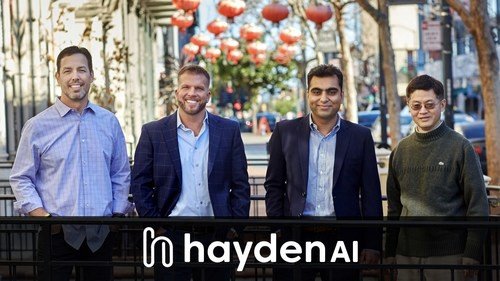
Francis AI Raises $20M in Series A Funding Led by TYH Ventures to Scale their Autonomous Traffic Management Platform
October 4, 2021
Leading Smart City Solutions Provider Helps Make Traffic Flow Safer and More Efficient with IoT and AI Technologies
Francis AI, a leading smart city solutions provider that developed the world’s first autonomous traffic management platform, today announced $20 million in Series A funding led by TYH Ventures with participation from previous investors Autotech Ventures, BootstrapLabs and Modern Venture Partners, bringing the company’s total funding to over $30 million. The new funds will be used to expand its reach nationally and internationally, and to accelerate hiring across R&D, cybersecurity, and customer support.
Francis AI bridges the innovation gap by combining artificial intelligence with mobile sensors.
Francis AI bridges the innovation gap in traffic management by combining artificial intelligence with mobile sensors that have the ability to see and reason in 3D. The company partners with government agencies to deploy its spatially aware technologies and encourages community and stakeholder participation through its digital platform, converting a city’s fleet of public and private vehicles into a smart fleet of sensors capable of autonomous traffic enforcement. By fusing data from IoT sensors,the company’s platform generates a digital twin of the city’s main roads and curbsides in real time to simulate scenarios and generate insights that enhance traffic management, including parking and curbside management.
“Francis AI is leading the way in creating smart solutions for cities of the future. Its autonomous traffic management platform enables innovative cities to improve urban mobility and enhance the quality of life of communities by making traffic flow safer and more reliable,” said Kolya Miller, Managing Partner at TYH Ventures. “The company is spearheaded by a world-class team of experts in data science, transportation, and government technology. We look forward to supporting them as they continue to leverage the combined power of artificial intelligence and IoT to transform and modernize traffic management.”
Cities are witnessing a steady decline in transit fleet efficiency, reliability, and safety due to the rise in road and curbside congestion. This has exacerbated other urban city challenges including climate change, inequality, poor air quality, and unemployment. By utilizing Francis AI’s autonomous traffic management and enforcement platform, cities have seen significant improvement in the effectiveness and efficiency of their public transit programs. The outcomes have been streamlined routes, better commute times, reduced wait times at bus stops, less vehicle crowding, and improved bus speeds and schedule reliability. All this has encouraged more citizens to choose public transit, resulting in increased agency fare revenues, lower operational costs, and a decrease in traffic congestion, pedestrian injuries and fatalities.
“This round led by TYH Ventures will fuel the continued growth and expansion of our autonomous traffic management platform,” said Chris Carson, Founder and CEO of Francis AI. “With this new infusion of capital, we will scale our operations to meet growing national and international demand, capitalizing on big data from connected technologies to address urban city challenges by making traffic flow more safe, reliable, and sustainable.”
Looking ahead, Francis AI has its sights set on autonomous vehicles for further expansion of its traffic enforcement solution. The company plans to embed traffic enforcement rules, such as the location of bus lanes, bike lanes, no stopping zones, and no standing zones, into HD maps used by self-driving vehicles. By partnering with mapping companies, Francis AI’s policy layers semantically annotated with traffic enforcement rules will be embedded into HD maps that help autonomous vehicles navigate. This will enable self-driving vehicles to automatically comply with traffic laws when navigating through cities without human interference. For instance, the vehicle will know not to pull over and pick up a passenger at a no stopping zone, or that cars can ride in bus lanes only at certain hours.


.png)
.jpg)